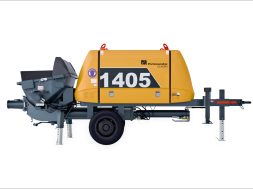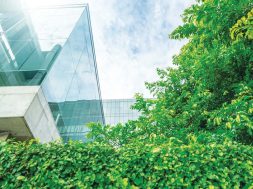RAINY, developed by Farmland, is a dual intensity rainwater harvesting filters with self-cleaning and auto flush out mechanism Farmland Rainwater Harvesting Systems (FLRHS), based in Karnataka, has been in the forefront in rainwater harvesting technologies for over a decade, with respect to both rooftop as well as groundwater recharge, through indigenous path breaking and self-reliant technology. The firm is the proud winner of two national and international award winning technologies, involving dual intensity filters to store and reutilise and injection V-wire technology to recharge groundwater source. Both these technologies have found a wide acceptance because of the increased success rate at the field level. The firm’s continued efforts in setting up the state-of-the-art R&D and hydraulic testing lab to achieve a breakthrough in inventing and manufacturing revolutionary filters both in design and function.
RAINY is a first of its kind dual intensity rainwater harvesting filters with self-cleaning and auto flush out mechanism. RAINY is the result of over 10 years of continuing R&D by Farmland. The research team has studied the actual pattern of rainfall in both rural and urban India, considering parameters like intensity of rainfall, type of houses, roofing materials, inclination of roof, pipeline used for rainwater outlets, reutilisation, recharging of ground water, and tube well. In the past decade, Farmland has witnessed phenomenal changes in global weather patterns. The unpredictable and erratic weather patterns have resulted in torrential down pours and rainfalls of very high intensity. These heavy duty dual intensity rainwater harvesting filters are so designed, keeping in mind the capture of rainfall loads varying from 5-75 mm/hour without affecting the efficiency of filter with an operating pressure of less than 0.06 kg/sq. cm. Hence, the filter can perform even under low roof areas. The design, stability and filter function efficiency is directly proportional to the intensity of rainfall. Different models of filters were set in place to capture rainwater from varied rooftops. This brought in affordability, to all cross sections of households and industry. All the filter models work on the principle of cohesion force of water molecules and centrifugal force of water.
The filters are highly scientific in design and built to give a long, dependable service. The key point of this filter is the self-cleaning mechanism in eliminating the need of periodic maintenance. Careful selection of materials and stringent manufacturing controls, assures the customer a satisfactory performance as per the filter rating. All materials used in this technology are eco-friendly and recyclable. The technology has gained wide acceptance reaching out thousands of consumers, especially individual households, institutions, schools and colleges, hospitals, commercial buildings, corporate sectors, industries, government and semi government organisations. The technology has helped the rural areas with significant improvement in the yield levels of bore wells which were earlier either dry or having low yields. Hundreds of lower and higher primary schools have also been benefited, in terms of assured drinking water supply as well as quality water for cooking midday meals.Farmland RWH systems has helped the people save the precious resource and also power in places where there is acute scarcity for drinking water. With over 1, 00,000 rainwater harvesting filter installations, the company was awarded two national awards. The first award in 2009 from the Confederation of Indian Industry (CII) as “most innovative water saving product” and second one from JSW in 2010 as “earth care award for innovation for climate protection”. The company has also received the prestigious “Green Champions Award” presented by Indian Green Building Council. This cutting-edge, indigenous path-breaking ground water recharge technology aids ground water recharge, especially in arid and drought prone areas. The technology eliminates the need for indiscriminate sinking of new bore wells, as well as the delivery of water through tankers.
The innovative ‘V-Wire Injection Well’ technology significantly helps in artificial recharge and aquifer storage and recovery. FLRHS has completed over 15,000 such installations across the country. The technology has both tangible and intangible benefits and aids in water recharge, reduces loss of top soil, checks sea water ingression in coastal areas, and reduces hardness and salinity in groundwater source.
The technology revolves around many scientific concepts, eliminating dirt and debris pouring in from rain water, through appropriate silt traps and positioning of injection wells at appropriate depths resulting in water columns and hydraulic pressure through a series of steps involving the ‘V-Wire Injection Well’ technology.
A dedicated team of professionals constantly train, upgrade and equip the skills of dealers for the successful implementation of the technology in different parts of the country. The technology has been installed in a number of government-sponsored projects along with the World Bank assisted projects.
At the dawn of the 21st century, FLRWHS is proud to state that the national and international award winning indigenous technologies, involving both roof top as well as ground water recharge, has brought about self-reliance of water and has made the country self-reliant in water in many drought prone areas.
Cookie Consent
We use cookies to personalize your experience. By continuing to visit this website you agree to our Terms & Conditions, Privacy Policy and Cookie Policy.









